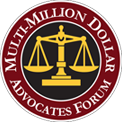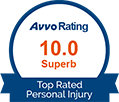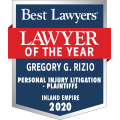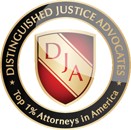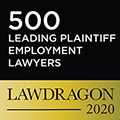Riverside Premises Liability Lawyer

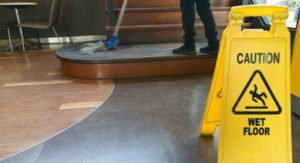 You might wonder what a Riverside premises liability lawyer does, and how they can help you. If so, our Riverside premises liability attorneys at Rizio Lipinsky Heiting Heiting Heiting Law Firm have prepared the following to answer the most commonly asked questions.
You might wonder what a Riverside premises liability lawyer does, and how they can help you. If so, our Riverside premises liability attorneys at Rizio Lipinsky Heiting Heiting Heiting Law Firm have prepared the following to answer the most commonly asked questions.
So what is “premises liability?” Here’s the answer.
Under State of California law, owning property that is open to the public – such as a grocery store, a retail store, a mall, or an amusement park – comes with specific responsibilities. These include an obligation to maintain the property and keep the land—and any structures on it, such as parking lots and sidewalks—free of hazards.
Unfortunately, some Riverside and San Bernardino County property owners fail to meet this legal obligation. Whether it is the product of willful neglect, indifference, or careless oversight, their negligence can have serious consequences.
When someone is injured because of this negligence, it is referred to legally as a “premises liability accident.”
Has a property owner’s negligence set the stage for an accident that bruised more than your pride? If so, an experienced premises liability lawyer in Riverside can secure the compensation that you deserve and need.
Exploring the Concept of Premises Liability
The concept of premises liability is simple. Did the property owner know of – or should have known of – an adverse or dangerous condition and yet failed to provide sufficient warnings or take appropriate actions to remedy the problem? Then the owner can be held liable for any injuries that result from that negligence.
While the general concept of premises liability is relatively easy to understand, building a convincing legal case that demonstrates how a property owner is liable for your specific injuries can be complicated. This is why it is best to reach out to a skilled premises liability attorney as soon as possible.
Types of Premises Liability Scenarios
Many circumstances can set the stage for a significant injury if property owners fail to maintain a safe environment on their premises. Examples of premises liability scenarios include personal injuries that are triggered by the following:
- Inadequate security
- Slip and fall accidents/slip and fall injuries
- Electrocutions
- Dog bites
- Shoddy construction
- Inadequate maintenance
- Fires
- Lead paint or mercury poisoning
Common Premises Liability Injuries Cases
While some accidents result in only minor aches, others cause serious injuries and are life-altering. Severe injuries like the following can occur from a premises liability case:
- Traumatic brain injuries
- Neck and spinal injuries
- Burns
- Paralysis
- Amputations
- Broken bones
- Internal injuries
- Sprains and strains
- Lacerations, contusions, and abrasions
- Cosmetic disfigurements
- Spinal cord injuries
If you have suffered an injury like the ones on this list, you may be entitled to compensation for your injuries. Personal injury attorneys specializing in premises liability claims can review your case and advise you how best to proceed.
Proving Liability in a Premises Liability Cases
The fact that you were hurt while on someone else’s property does not automatically make the owner liable. In fact, the owner is not responsible if your inattention or carelessness results in injury. The owner is only liable if their neglect created unsafe conditions that led to your injury. To successfully litigate a premises liability case, you must prove four things:
- The property owner owed a duty of care. An invitee is someone who enters a place open to the public or whose presence offers a financial benefit for the property owner. A licensee has expressed or implied permission to enter a location. Both invitees and licensees are authorized to be on the property, and public and private entities owe them a duty of care. However, trespassers who unlawfully enter or linger in a place do not generally receive this protection.
- A dangerous condition was present. Photographs, security footage, witness testimony, police reports, and complaint forms can all help establish that a hazard was present.
- The dangerous condition caused your injuries. You must be able to argue convincingly that the hazardous condition was the root cause of any injuries. For example, you may need to demonstrate that a fall was the result of an icy sidewalk and not footwear that was unsuitable for the conditions.
- The injury resulted in damages. Damages can include lost wages and medical bills. You might also secure compensation for any temporary or permanent disability, and pain and suffering.
The Benefits of Hiring a Riverside Premises Liability Lawyer
Why should you enlist the services of an attorney familiar with premises liability law for your legal representation? An experienced personal injury attorney is an invaluable advocate who increase your chances of recovering the full compensation owed to you by a negligent property owner in a personal injury lawsuit.
Property owners and their insurance companies will often deny fault or offer a nominal settlement. Hiring an attorney provides you with a knowledgeable ally who will use their skills and connections to gather the evidence needed to build a compelling legal case. The attorney can also help you determine a reasonable value for your claim and negotiate with the insurance company on your behalf, or act as your representative in court if a lawsuit is necessary.
If you are seeking the services of a Riverside premises liability attorney to pursue a personal injury claim on your behalf, please call the legal team at Rizio Lipinsky Heiting. Our successful track record and years of experience in Riverside County and throughout Southern California show we understand what it takes to represent clients and win cases against large corporations, insurance companies, and government entities.
We cut through the clutter to present cases that are meaningful and understandable so our clients receive the maximum compensation to which they are entitled. Contact us today to request a free consultation, and to understand your legal rights and the legal process ahead.
- This article should only be used for informational purposes. It does not constitute legal advice, and it does not create an attorney-client relationship with anyone. If you need legal advice, please consult an attorney in your community.
A Review of Rizio Lipinsky Heiting
Personal Injury Lawyers

 5/5
5/5
Rizio Lipinsky Heiting - Riverside

Rizio Lipinsky Heiting - Riverside






